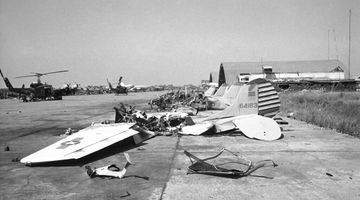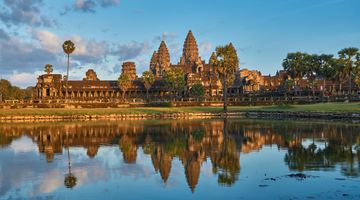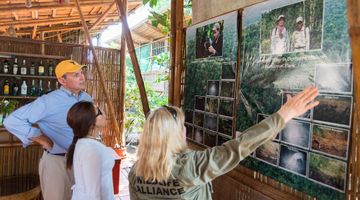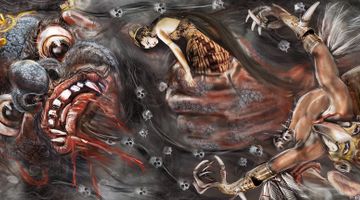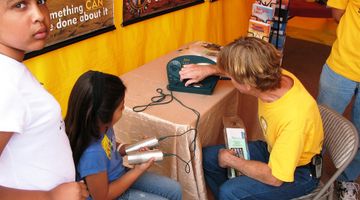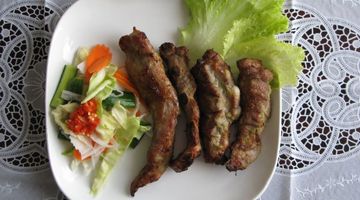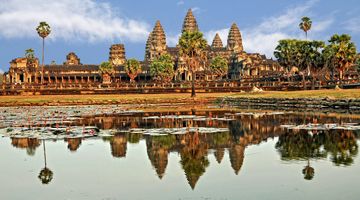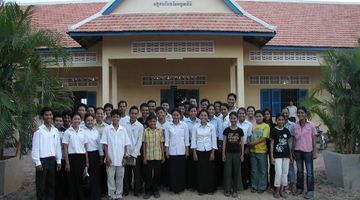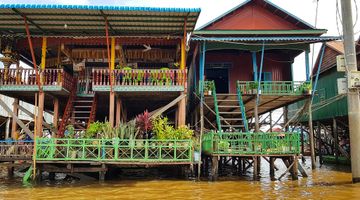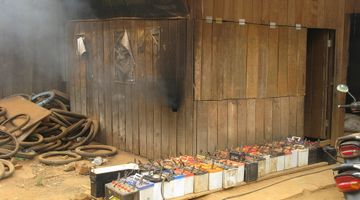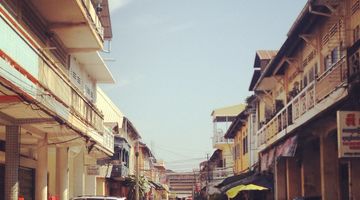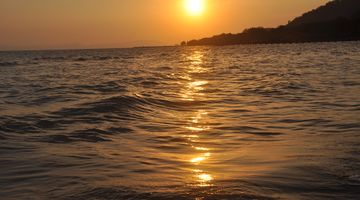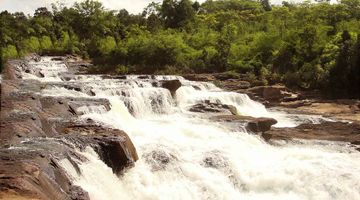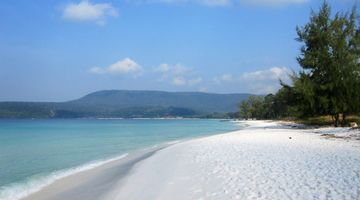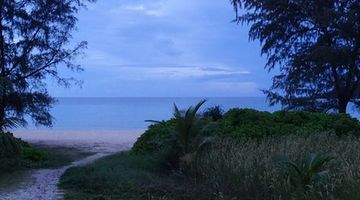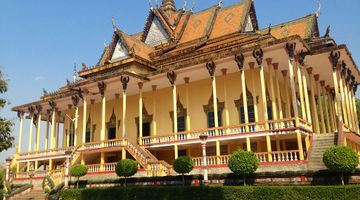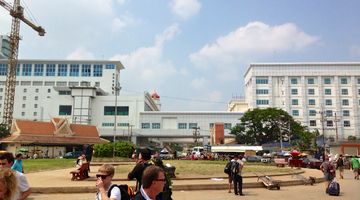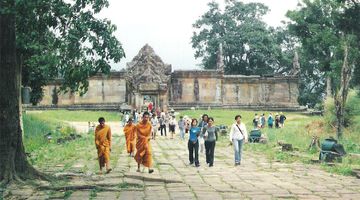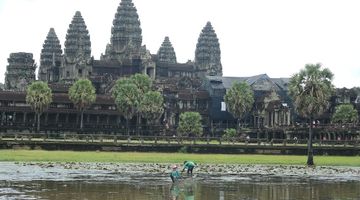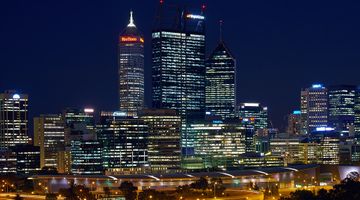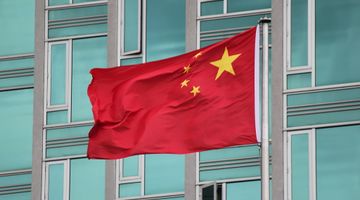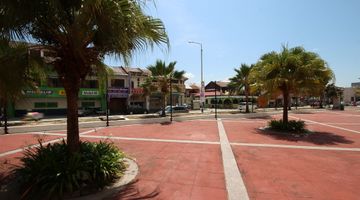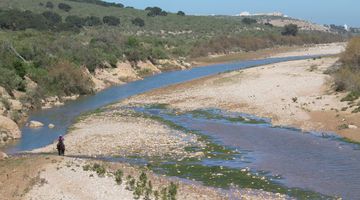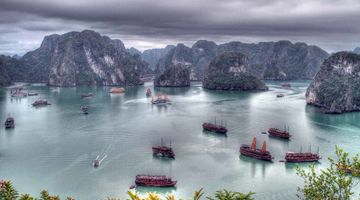Phnom Penh Cambodia - the Ultimate Travel Guide
About
Phnom Penh is one of those magical diamonds in the rough. The first time you will fly into the airport you will most probably feel like you have stepped back in time. Though Phnom Penh is changing rapidly, the lack of infrastructure and dirt roads can still produce quite a shocking impression in comparison to its neighbouring countries, but even a brief glimpse into the history of Cambodia can teach you to understand and appreciate why it is this way. The city of Phnom Penh, and rather the entire country, has had a rather tumultuous past and has undoubtedly been the centre of constant conflict.
Phnom Penh became the capital in 1432 for roughly 70 years, but due to political tensions it was abandoned for 360 entire years as the Khmer people moved elsewhere. In the 1860s it was once again declared the capital, but it was a slow growth. In fact it didn’t fully regain its prosperity until the 1960s with additions of a railway, hotels and even a casino. The city was doing well and even coined the "Pearl of Asia."
In 1970 however, this all came to a screeching halt when the Cambodian Civil War was in full effect. On April 17, 1975 the Khmer Rouge evacuated all residents of Phnom Penh and destroyed much of the city. In just those few days the population of the city dropped from 2 million people to a handful of officials. Once again Phnom Penh was in need of a rebuild. The Khmer people, being as resilient as ever, returned to Phnom Penh following the Khmer reign of terror where it is now a thriving peaceful home to over 3 million people and has grown fourfold since the 70s.
Why go
If you're hoping for a modern cosmopolitan vacation, this is not your city. However if you're after an authentic and charmingly-gritty experience, this is your place. Architecturally speaking, there are a multitude of intricate palaces and stunning Buddhist temples within a walkable distance of the city centre, like the Royal Palace and the Silver Pagoda. The must-see of Phnom Penh, though hard to stomach, is the Choeung Ek Genocidal Center also known as the killing fields during Pol Pots rule. The Riverside, Sisowath Quay is jam-packed with monks, backpackers and Khmer families getting exercise and watching the boats pass on the Mekong River.
Weather
Is basically hot all year round in Phnom Penh. There is indeed a rainy season from May to October and the best time to visit is generally November–March, which is considered the dry season. The months following bring with them stronger humidity, rain and heat, sometimes oppressive, so you may find yourself spending all days long drinking ice-cold beer in an air-conditioned bar instead of exploring the city.
Accommodation
Accommodation choices in Phnom Penh are both endless and affordable. Whether you'd prefer the shoestring budget dormitory or a more modern boutique hotel, you can get a lot of value with your money in Cambodia. Their general prices for food, alcohol and transportation are normally cheaper than in the surrounding countries of Laos, Vietnam and Thailand.
Food & drink
Khmer food is seemingly similar to Thailand in a lot of ways but yet so very different. They often serve the same kinds of curries, noodle dishes but their traditionally known dish is amok, a type of thick soup cooked with fish and spices. Food stalls are located virtually everywhere in the city, tucked away in the side streets and pushed down the roads on wheels. Sometimes it’s nice to take a risk and taste some of the authentic stall foods, mostly ordered by pointing at whatever the non-English speaking chef has brewing, these meals are usually incredibly cheap. Phnom Penh also has its fair share of western foods, mostly found in the cafes at the tourist-popular river front. You will for sure notice a fascination with pizza, but be forewarned that "Happy Pizza" does just that, it makes you happy with an added dose of marijuana. Though Cambodia has a strictly negative outlook on drug use, somehow this one is an unspoken pass.
Nightlife
Nightlife in Phnom Penh is nothing to write home about in comparison to, say, Bangkok. This is more of a sleepy town at night. That's not to say you cannot find a fun party, but Phnom Penh is more of a relaxed pub type of place. Just across the riverfront there is a large assortment of backpacker bars, rooftop pubs and cheap eats, but one place surely worth visiting is the Foreign Correspondents Club or better known as the FCC, once a gathering place for journalists and aid workers is now a spot for locals, backpackers and well travelled veterans alike to chat and enjoy the river views from the rooftop.
Getting around
Phnom Penh is quite expansive, so we'd suggest getting a tuk-tuk to transport, but always agree to the price before you take the ride as fares vary depending on distance and occasionally you will hear about tourists being ripped off on price or being stuck with a hefty cost at the end of the ride. The same goes for taxis, though tuk-tuks are more adventurous in our opinion. If you have a full day of travelling around the sites, we'd suggest paying $15-$20 and just hiring the tuk-tuk driver for the day, as the market seems very saturated, a steady day of work will make a driver happy.
Onward travel
Phnom Penh is a convenient hub for travel around the country and the whole region.
Phnom Penh airport offers multiple cheap and quick flights to other surrounding Southeast Asian countries but always allow a good amount of time to get to the airport, as the traffic can be quite horrendous and the departures terminal is chaotic.
Phnom Penh also serves as a coach bus hub for travel to other parts of Cambodia, as well as Ho Chi Minh City and Bangkok. We always recommend to book your bus ticket ahead to secure the class of the seat you want, especially if you travel during peak times.
Safety
One thing that makes Phnom Penh so special however is the people. In a country that has experienced so much turmoil and tragedy, nowhere else have we encountered such genuinely kind, good-humoured humans. Despite all the violence and pain they have endured, the Khmer people are peaceful, good humoured and helpful making it a safe place for women and solo travellers to visit.
